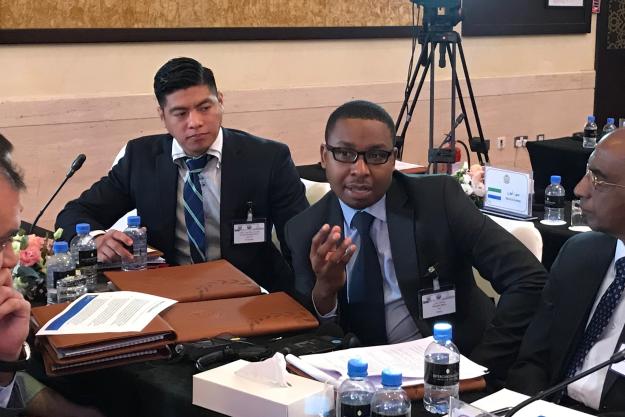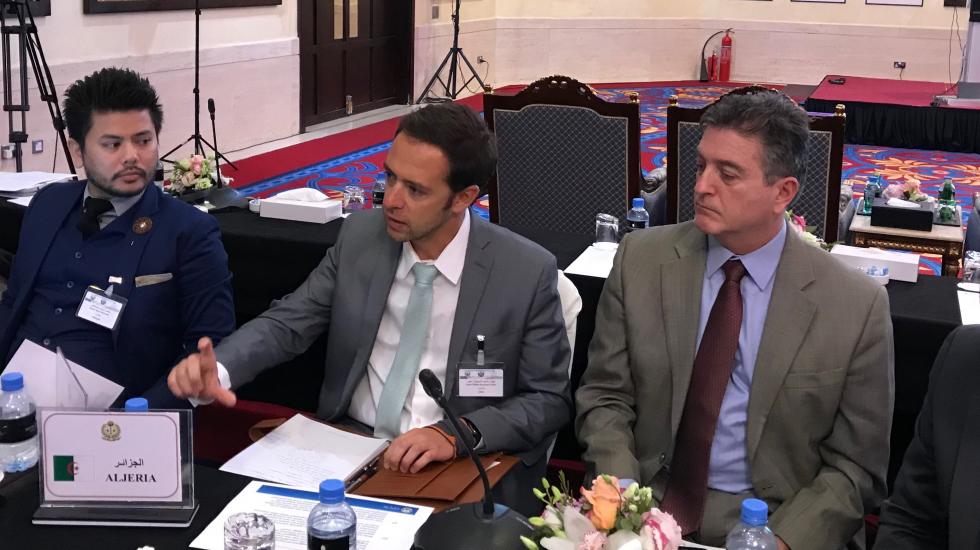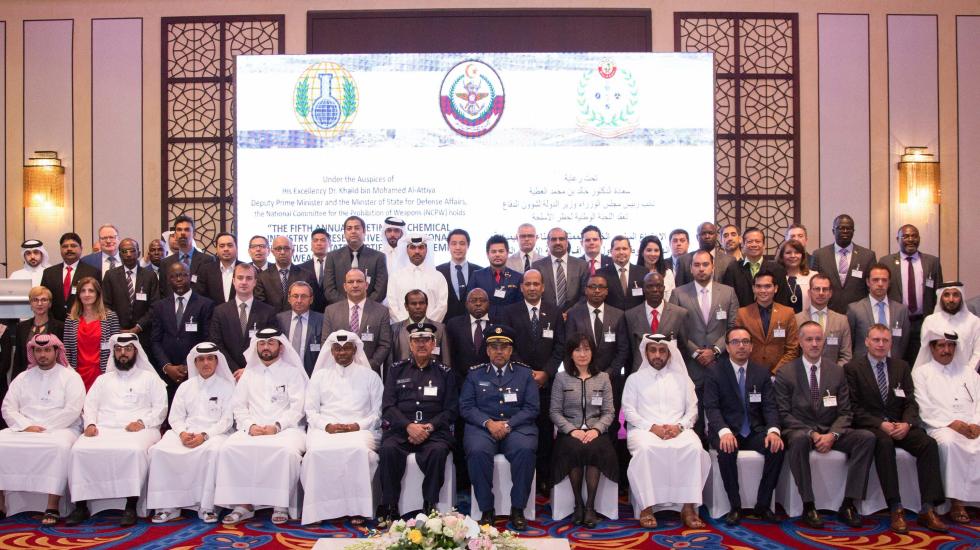
THE HAGUE, Netherlands — 12 October 2018 — State officials and chemical industry representatives from 25 Member States of the Organisation for the Prohibition of Chemical Weapons (OPCW) endorsed measures to increase cooperation between National Authorities and the industry during their fifth annual meeting held in Doha, Qatar, from 2-4 October.
In his opening remarks, the Chairman of the Qatar National Committee for the Prohibition of Weapons (NCPW), H.E. Brigadier Hassan Saleh Al Nesf, emphasised the importance of such meetings in “strengthening the capabilities of OPCW Member States to address the threats posed by chemical terrorism and to promote peaceful uses of chemistry”.
Senior Coordination and Planning Officer, Ms Chizu Matsushita, stated that, “All chemical industries regardless of the size and scale need to be engaged in addressing new and emerging challenges, including the threat of chemical terrorism.”
The meeting gathered nearly 70 professionals, representing National Authorities, the chemical industry and the International Council of Chemical Associations.
They focused on three themes: improvement of efficiency and effectiveness of the Chemical Weapons Convention’s (CWC) verification regime, raising national awareness of the Convention, and the role of Article VI in the light of emerging security threats and chemical terrorism. The participants also discussed how cooperation between National Authorities and the chemical industry could be enhanced.
The document summarising the meeting’s conclusions will be distributed soon to the participants as a way to advance national implementation of the Convention.
The meeting was co-organised by the OPCW and the NCPW, with the financial support by the Government of Qatar.
Representatives of the following OPCW Member States participated in the meeting: Algeria, Angola, Bangladesh, Brazil, Chile, Colombia, Croatia, El Salvador, Ghana, Guatemala, India, Iran, Japan, Kenya, Malaysia, Myanmar, Nigeria, Pakistan, Peru, Philippines, Sierra Leone, Sri Lanka, Ukraine, United Kingdom of Great Britain and Northern Ireland, and Zambia.


Background
Launched in 2014, the Annual Meetings of the Representatives of the Chemical Industry and National Authorities of States Parties to the Chemical Weapons Convention (CWC) provides a forum for direct interaction between stakeholder groups key to national implementation of the Convention.
98% of the world’s chemical industry falls under the OPCW verification regime of the Chemical Weapons Convention.
By the end of 2017, 92 OPCW Member States had submitted declarations for declarable facilities or activities for 2016, involving over 5,000 sites. The number of inspected industrial sites exceeded the number of inspected chemical weapon-related sites which totalled 3,190.
The Technical Secretariat of the OPCW since its establishment has conducted 3,726 inspections of industrial sites to verify that production and use of chemicals are intended solely for peaceful purposes.
As the implementing body for the Chemical Weapons Convention, the OPCW, with its 193 Member States, oversees the global endeavour to permanently eliminate chemical weapons. Since the Convention’s entry into force in 1997, it is the most successful disarmament treaty eliminating an entire class of weapons of mass destruction.
Over 96% of all chemical weapon stockpiles declared by possessor States have been destroyed under OPCW verification. For its extensive efforts in eliminating chemical weapons, the OPCW received the 2013 Nobel Peace Prize.
